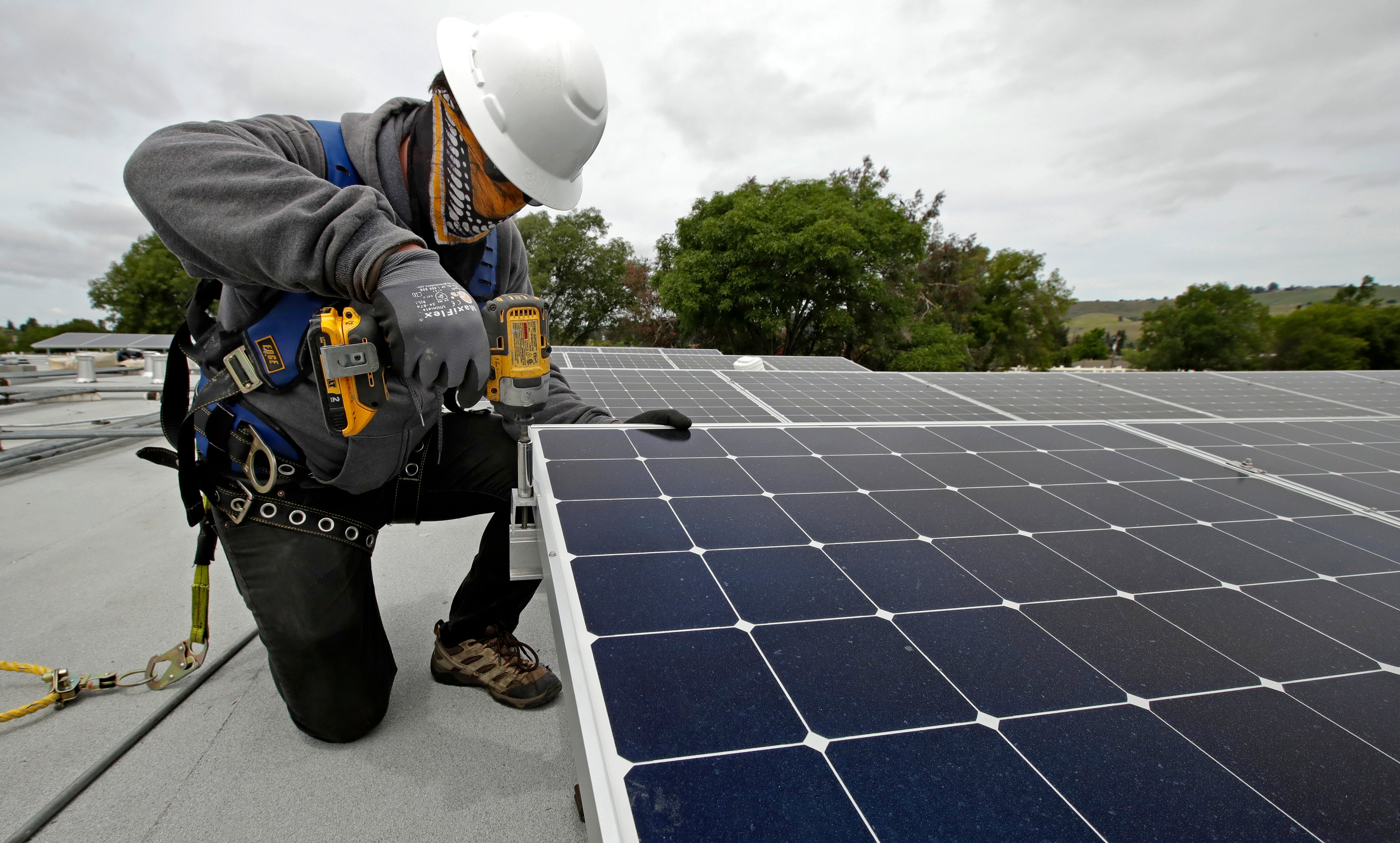California set to lower incentives for rooftop solar panels
California utility regulators are set to vote on changes to the state's booming rooftop solar market

Your support helps us to tell the story
From reproductive rights to climate change to Big Tech, The Independent is on the ground when the story is developing. Whether it's investigating the financials of Elon Musk's pro-Trump PAC or producing our latest documentary, 'The A Word', which shines a light on the American women fighting for reproductive rights, we know how important it is to parse out the facts from the messaging.
At such a critical moment in US history, we need reporters on the ground. Your donation allows us to keep sending journalists to speak to both sides of the story.
The Independent is trusted by Americans across the entire political spectrum. And unlike many other quality news outlets, we choose not to lock Americans out of our reporting and analysis with paywalls. We believe quality journalism should be available to everyone, paid for by those who can afford it.
Your support makes all the difference.California utility regulators are set to vote Thursday on changes to the state's booming rooftop solar market that they say will more evenly spread the cost of energy and help reduce reliance on fossil fuels in the evening.
California has long led the nation in adoption of home solar panels, and today more than 1.5 million California houses have them on the roof. Under a decades-old program, people with solar panels can get paid by their power companies by sharing excess solar energy they don't need, and the payments are so generous that some solar homes pay minimal electric bills.
That has led to criticism that homeowners with solar panels aren’t paying their fair share of toward the overall energy grid, on which they still rely when they aren’t generating solar power in the evening. Power rates include costs like electric transmission and wildfire prevention work, and state regulators give utilities a set amount they can collect from their customer base.
The fight over changes to the program — directed by the state Legislature — has been controversial from the start, pitting the state’s three major utilities against the solar industry, with many environmental groups caught somewhere in between.
Any changes would only apply to customers of those three major utilities — Pacific Gas & Electric, Southern California Edison and San Diego Gas & Electric. They would not affect people who already have rooftop solar, only new customers.
The discussion comes as California pushes forward with ambitious targets for weaning the state off oil and gas. State air regulators are set to vote Thursday on a climate roadmap that says California must quadruple its solar and wind power to achieve carbon neutrality by 2045.
A utility-backed coalition called Affordable Clean Energy for All estimates that $4 billion in costs are shifted from solar to nonsolar customers. The solar industry disputes that number, saying it doesn’t account for the benefits rooftop solar provides for everyone, like making the grid more resilient and reducing the need for utilities to build more costly legacy power equipment.
The changes before the California Public Utilities Commission would lessen the financial incentive for selling power back to utilities. It also changes electric rates to try to encourage people to build home storage systems alongside their panels, so they can tap that stored power at night instead of relying on the overall energy grid. Though solar provides a lot of California's power during the day, fossil fuels largely take over in the evening and during the night.
Today about 16% to 20% of the 150,000 households that install solar panels annually in California add battery storage systems, according to industry estimates.
Broadly, solar companies have warned that fewer people will add home solar because the overall incentives are going down.
“The solar and storage industry remains concerned that the transition from net metering to the new net billing structure is too abrupt and threatens to slow the deployment of rooftop solar in California,” Sean Gallagher, vice president of state and regulatory affairs for the Solar Energy Industries Association, said in a statement.
The Public Advocates Office, a consumer advocacy group with the utilities commission, has called the proposal a “step in the right direction." The group pointed to commission estimates that show the proposal will still save residential solar customers an estimated $100 on their monthly bills, or $136 a month if they also install storage systems.